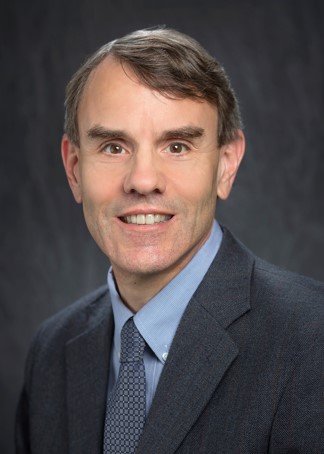Kermit Murray

Bachelor's Degree(s): Chemistry, University of California, 1982
PhD: Chemical Physics, University of Colorado, 1988
PostDoc: Rice University, 1989-1991;
Texas A&M University, 1991-1994
Websites:
Murray Group Server
Mass Spectrometry Terms
LSU Mass Spectrometry Facility
Biography
Kermit K. Murray is the Roy Paul Daniels Professor of Chemistry at Louisiana State University. He was born in Oakland, California and grew up in the San Francisco Bay Area. He obtained his B.S. degree in Chemistry with high honors at the University of California, Berkeley, in 1982 and was the Chemistry valedictorian. He received his Ph.D. in Chemical Physics at the University of Colorado in 1988, working with Professor W. Carl Lineberger on the chemistry and spectroscopy of negative ions. He went on to postdoctoral research on infrared spectroscopy at Rice University with Professor Robert F. Curl and at Texas A&M University with Professor David H. Russell, where he developed novel spray ionization methods for MALDI mass spectrometry. In 1994, he became an assistant professor at Emory University before moving to Louisiana State University in 2001. His research focuses on instrument development for mass spectrometry using lasers for sampling and imaging of complex biological samples. He has collaborated in three Small Business Administration projects through the National Institutes of Health to develop laser sampling and imaging systems for biomedical research applications. He is on the editorial boards of the Journal of Mass Spectrometry, Rapid Communications in Mass Spectrometry, Analytica Chimica Acta, and the Journal of the American Society for Mass Spectrometry. He is a past board member of the American Society for Mass Spectrometry and a recipient of the ASMS Research Award. In 2013, he was elected an IUPAC Fellow for development of mass spectrometry terminology and on-line resources.
Area of Interest
Murray Group research is aimed at mass spectrometry instrument development. We use lasers to create ions and to sample materials under ambient conditions. A major theme of our research is coupling mass spectrometry to other analysis techniques such as liquid chromatography, microfluidic chips, and, in our newest project, combining atomic force microscopy with mass spectrometry for single cell analysis. We work to achieve a fundamental understanding of laser desorption and ionization processes and through that understanding to improve performance and expand the applications of mass spectrometry.